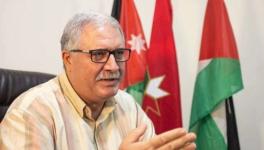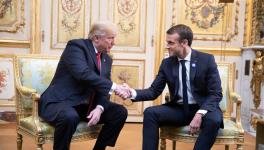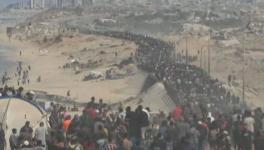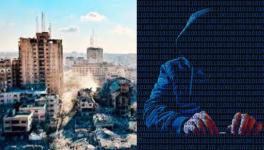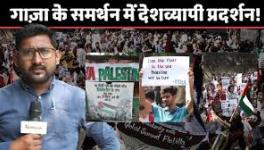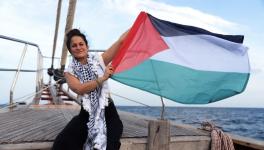ICJ Upholds South Africa’s Case Against Israel, Orders Measures to Prevent Genocide in Gaza
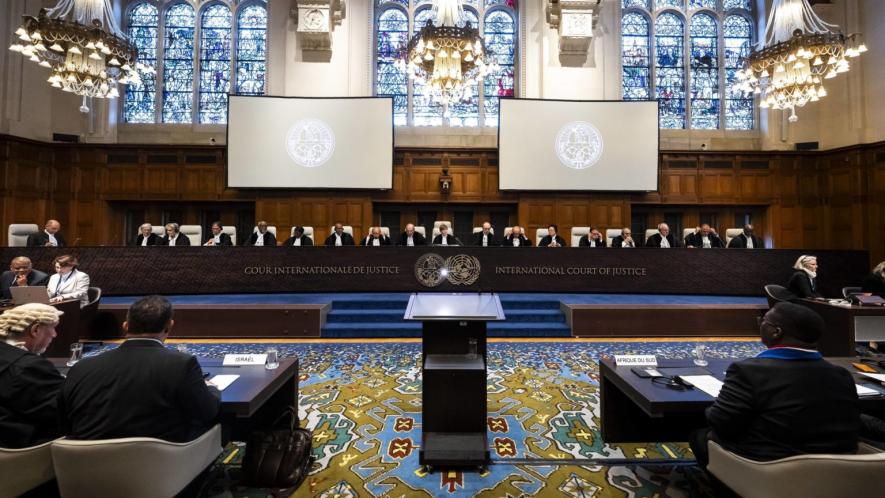
File Photo
The International Court of Justice (ICJ) has ruled in favor of South Africa’s request for provisional measures in its case against Israel over the ongoing war on Gaza. The request is part of an application filed by Pretoria, accusing Israel of violating its obligations under the Convention on the Prevention and Punishment of the Crime of Genocide.
In a ruling issued on January 26, the Court determined that it had jurisdiction over the matter, and as such, rejected Israel’s request for the case to be dismissed.
While reading Friday’s ruling, Judge Joan Donoghue reiterated that at the stage for the request for provisional measures, the court is not required to ascertain whether any violations of Israel’s obligations under the Genocide Convention have occurred, but whether the acts complained of “appear to be capable” of falling under its provisions.
“In the court’s view, at least some of the acts and omissions alleged by South Africa have been committed by Israel in Gaza appear to be capable of falling within the provisions of the Convention”, the ICJ’s order states.
The Court also recognized that the Palestinians in Gaza formed a substantial part of the Palestinian people as a protected group under Article II of the Convention, which defines genocide as “acts committed with intent to destroy, in whole or in part, a national, ethnical, racial or religious group.”
“The Court notes that the military operation being conducted by Israel following the attack of 7 October 2023 has resulted in a large number of deaths and injuries, as well as massive destruction of homes, forcible displacement of the vast majority of the population and extensive damage to civilian infrastructure.”
Donaghue went on to cite statements by the UN humanitarian chief, Martin Griffiths, who had stated on January 5 that Gaza had “become a place of death and despair”, and that its people were witnessing “daily threats to their very existence.” She also quoted statements from the WHO, as well as the head of the UN Relief and Works Agency for Palestine Refugees in the Near East (UNRWA) , Philippe Lazzarini, who stated on January 13 that the “clock is ticking fast towards famine.”
The Court recognized the right of the Palestinian people to be protected from acts of genocide.
Importantly, the ICJ took note of the statements made by senior Israeli officials — statements meticulously documented in Pretoria’s application as evidence of an intent to commit genocide.
Donaghue read aloud Israeli defense minister Yoav Gallant’s declaration of the “complete siege of Gaza,” his reference to Palestinians as “human animals,” and his call to “eliminate everything.” Also mentioned were Israeli President Isaac Herzog’s remarks that there is “an entire nation out there that is responsible” and “we will fight until we break their backbone.”
Noting that Israel’s military operations in Gaza strip were ongoing, quoting Israeli Prime Minister Benjamin Netanyahu that the war would take “many more long months” — at a time when Palestinians did not have access to food, water, electricity, medicines or heating, as well as indications that maternal and newborn death rates are expected to increase— the Court stated that the “catastrophic humanitarian situation in the Gaza strip is at serious risk of deteriorating further before the court renders its final judgment.”
The Court further stated that the steps Israel had taken to address the conditions in Gaza, and the remarks by its Attorney General that a call for intentional harm to civilians may amount to a criminal offense of incitement, were insufficient.
Pending a final decision in the case, “the Court considers that there is an urgency…there is a real and imminent risk that irreparable prejudice will be caused to the rights found by the Court to be plausible…The court concludes…that the conditions required …for provisional measures are met.”
The first provisional measure sought by South Africa was an immediate suspension of Israel’s military operations in and against Gaza. On January 25, Hamas had also stated that it would abide by a ceasefire if it was ordered by the ICJ, as long as Israel did the same.
The ICJ in its order made no mention of this request, and as observers have highlighted, did not discuss military action, a ceasefire, or the question of self-defense— in its advisory opinion in 2004, the ICJ had determined that Israel could not claim this right in relation to a territory it was occupying.
However, it has indicated a series of provisional measures, each approved with an overwhelming majority among the 17-judge-panel, which are binding in effect and place “international legal obligations” to the State Party to whom they are addressed — in this case, Israel.
First, by 15 votes to 2, Israel must “take all measures within its powers to prevent the commission of all acts within the scope of the Convention.” These acts include a) killing members of the group, b) causing serious bodily or mental harm” and c) deliberately inflicting on the group conditions of life calculated to bring about its physical destruction in whole or in part and d) imposing measures intended to prevent births within the group.
Second, with 15 votes in favor, Israel shall ensure with immediate effect that its military does not commit any acts described in point 1. By 16 to 1 votes, Israel shall take all measures within its power to prevent and punish the direct and public incitement to commit genocide in relation to Palestinians in Gaza.
Fourth, with 16 votes, Israel has been ordered to “take immediate and effective measures to ensure the provision of urgently needed basic services and humanitarian assistance to address the adverse conditions of life” in Gaza. By 15 to two votes, Israel must also take “effective measures to prevent the destruction and ensure the preservation of evidence” related to allegations under the Genocide Convention. In its application, South Africa had also requested that Israel “shall not act to deny or otherwise restrict access by fact-finding missions, international mandates and other bodies to Gaza to assist in ensuring the preservation and retention of said evidence.”
Finally, Israel has to submit a report to the ICJ on “all measures taken to give effect to this order” within one month as from the date of the order (January 26). This was approved with 15 votes in favor.
Under the statute of the ICJ, it will now notify the UN Security Council of the provisional measures ordered. Given that the Court lacks an enforcement mechanism, questions remain on how these measures will be operationalized.
Prime Minister Netanyahu responded to Friday’s ruling by calling the charge of genocide as “false” and “outrageous,” adding that “Israel would continue to defend itself against Hamas.”
Senior Hamas official, Sami Abu Zahri, told Reuters that the ruling was an “important development that contributes to isolating the occupation and exposing its crimes in Gaza. We call for compelling the occupation to implement the court’s decision.”
The Palestinian foreign ministry stated that the ruling “breaks Israel’s entrenched culture of criminality and impunity, which has characterized its decades-long occupation, dispossession, persecution and apartheid in Palestine…Governments must ensure that they are not complicit in this genocide…This is now a binding legal obligation.”
The Court’s ruling will raise significant questions of the obligations of other State Parties to the Genocide Convention.
As South Africa noted in its statement on Friday, “Third States are now on notice of the existence of a serious risk of genocide against the Palestinian people in Gaza. They must, therefore, also act independently and immediately to prevent genocide by Israel and to ensure that they are not themselves in violation of the Genocide Convention including by aiding or assisting in the commission of genocide.”
“This necessarily imposes an obligation on all States to cease funding and facilitating Israel’s military actions, which are plausibly genocidal.”
It further warned that “the veto power wielded by individual states [in the Security Council] cannot be permitted to thwart international justice, not least in light of the ever-worsening situation in Gaza brought about by Israel’s acts and omissions in violation of the Genocide Convention.”
Get the latest reports & analysis with people's perspective on Protests, movements & deep analytical videos, discussions of the current affairs in your Telegram app. Subscribe to NewsClick's Telegram channel & get Real-Time updates on stories, as they get published on our website.









